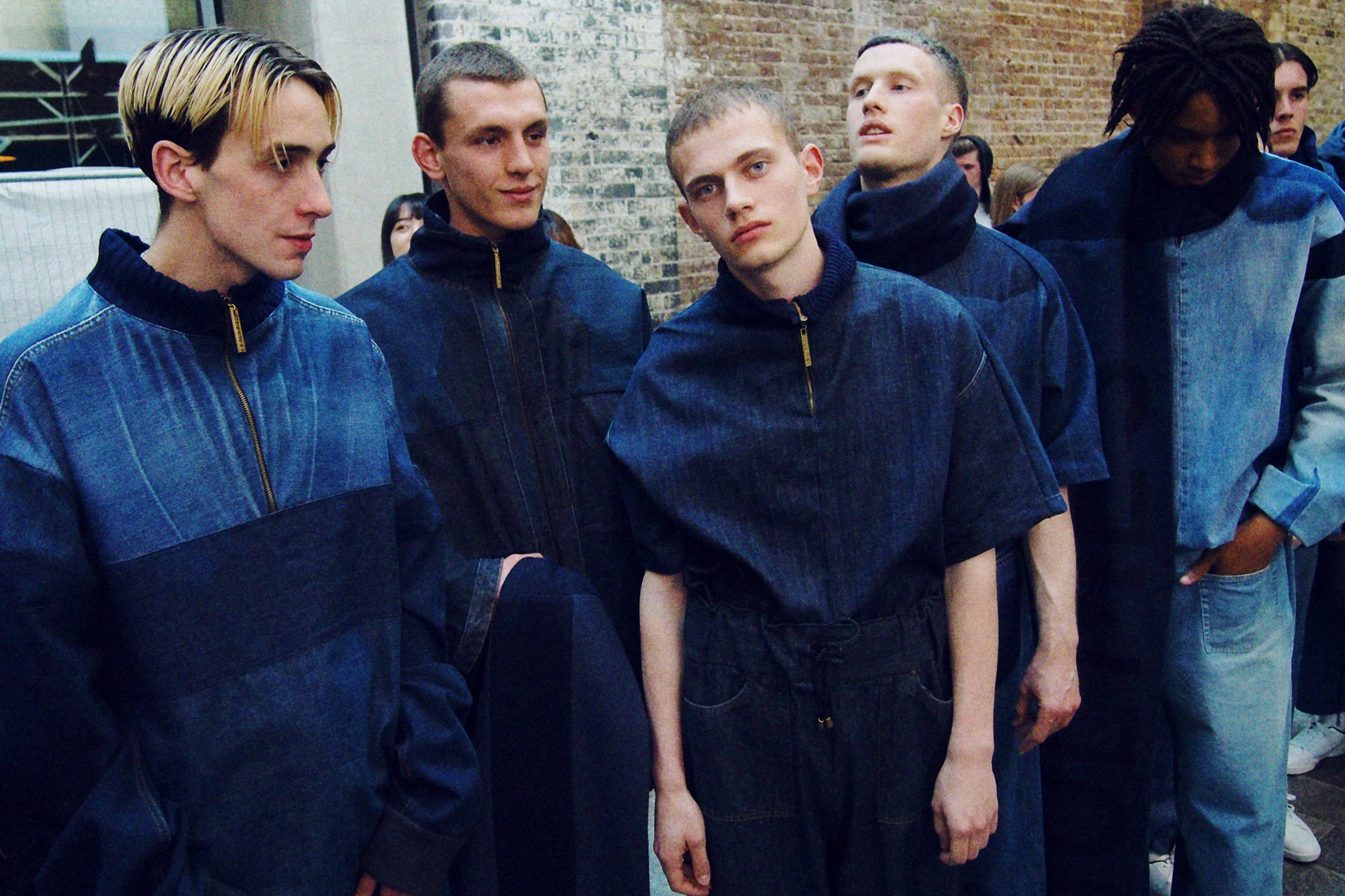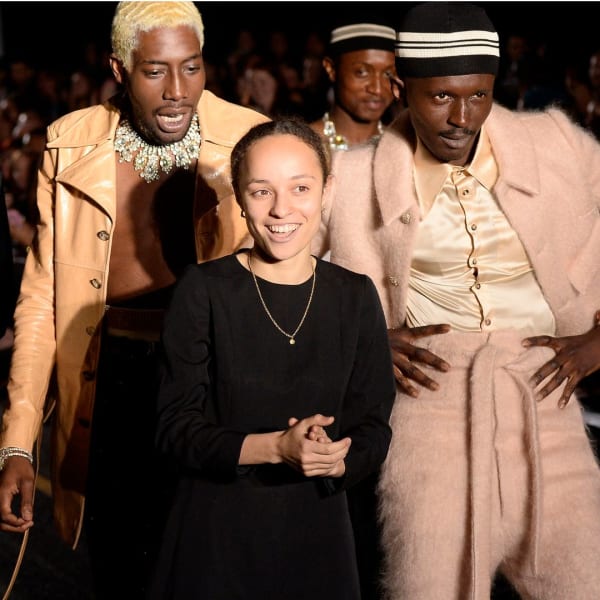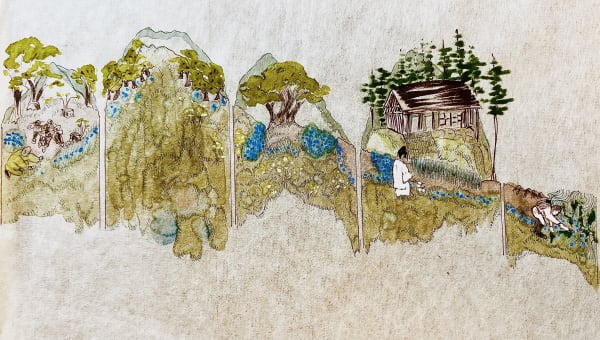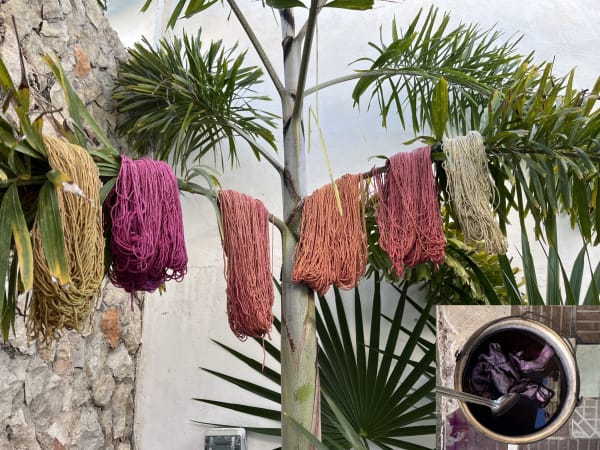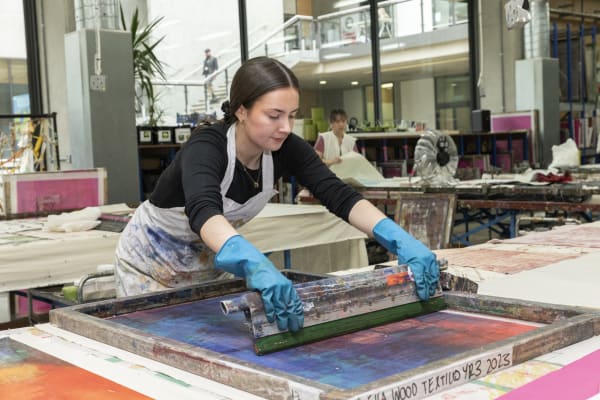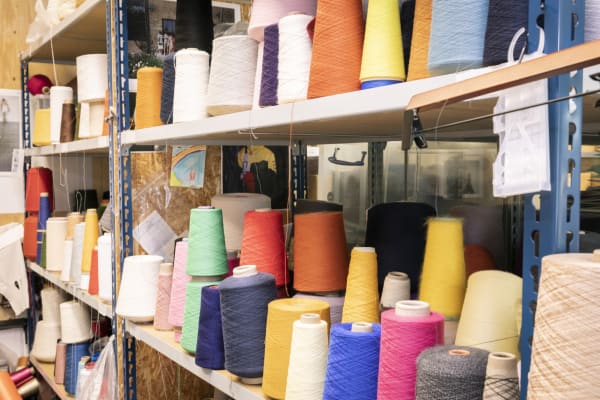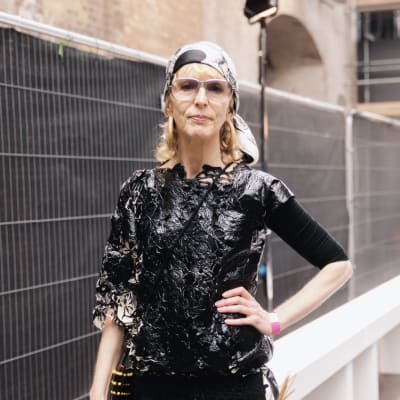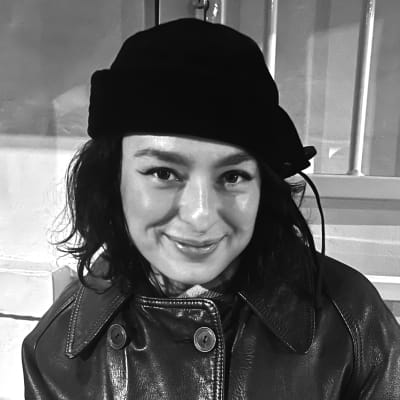Course units
An emphasis on professionalism, innovation and creativity on this pathway will allow you to develop and realise your ideas. You will be introduced to various design skills which will inform and support your creativity. These will include research methods; flat pattern cutting; modelling on the stand; garment construction; tailoring processes and finishing; illustration; and presentation skills. You will widen your awareness of the diversity of the industry and gain an understanding of the global context and system of fashion. Within this first year, you will engage with the urgency of the climate emergency and community engagement to explore a diverse and inclusive definition of fashion and approaches to creative practice. knowledge will be enhanced through targeted projects and the guidance of lecturers who are specialists in their field. The whole course is a learning journey; you will gain a deeper appreciation for your pathway area at each stage.
Stage 1
Unit 1: Introduction to the Fashion Programme and to Studying at CSM
Unit 2: Skills, Research and Creative Development. Part 1
Unit 3: Skills, Research and Creative Development. Part 2
Unit 4: Creative Unions
In Stage 1, all students arrive at CSM with different skills and experiences, which adds richness to the course and enhances peer learning and collaboration. This first year aims to improve your understanding and approaches to learning and will provide a base level of skills to enable you to be successful in your pathway. You will focus on the skills needed to communicate information effectively and will be introduced to resources which support your studies. Units 2 and 3 will provide a foundation in the generation and development of design ideas. Through practical workshops, you will learn the unique aspects your chosen pathway. You will also be introduced to other course pathways. Creative Unions provides you with the opportunity to engage collaboratively with students from different disciplines at CSM. The unit introduces you to ways of thinking about cross-disciplinary, participatory practice to address common world challenges. Working in a small team you will identify a context where social and environmental issues arise and produce a collective response that seeks to activate positive and ethical change.
Stage 2
Unit 5: Positioning and Professional Preparation
Unit 6: Developing Creative Perspectives
Unit 7: Voice and Vision
Unit 8: Fashion Critical Studies
In stage 2, Unit 5 encourages you to consolidate the skills needed to develop and articulate your own practice. You will further enhance your knowledge of industry and collaborative working with a focus on your future employability. During this year, you will benefit from the opportunity to interact with, and gain feedback from external guest speakers and live projects. In Units 6 and 7 you will explore the breadth of your subject, gaining confidence and developing your individual talents to allow you to form your own opinions. Learning includes studio and formal tutorial guidance, seminars, lectures, external projects and competitions, critiques, personal research, independent study and team projects. Unit 8 offers a range of research methods and approaches which will support you in undertaking more self-directed study. This unit centres on the critical and cultural theories, which underpin the thinking and creative practice throughout the course.
Stage 3
Unit 9: Final Collection: Research, Design and Development
Unit 9a: Final Collection: Research, Design and Development (Option 2)
Unit 10: Dissertation
Unit 10a: Dissertation: Extended (Option 2)
Unit 11: Final Collection: Resolution and Global Sharing
Stage 3 gives you an increased level of autonomy. Within a supportive community, you will benefit from regular tutorials and guidance. Through exposure to different manufacturing processes, systems and materials, you to define your creative identity as a designer during this final year of study. By the end of Unit 9, you will have completed the initial research and design phase and presented your degree collection proposal to a portfolio presentation standard.
Your dissertation represents the culmination of your cultural studies work for your degree. It extends your research, analytical and communication skills. You will focus on a selected aspect of visual, textual, material, social, media or spatial culture, this will align with an area of interest for your studio-based work. In some cases, students may wish to place greater emphasis on the dissertation. There is a route in place to accommodate this which you must make an application for. This will allow you to demonstrate a focused study of your chosen subject. In the final unit of the course, you will complete and present your degree collection and portfolio of work.
Optional Diploma Year
Industry Diploma in Professional Studies (DIPS)
This optional diploma can be taken between years 2 and 3. With support from your tutors, you will undertake an industry placement for a minimum of 100 days/20 weeks. As well as developing industry skills, you will gain an additional qualification upon successful completion.
CCI Creative Computing
Between years 2 and 3, you can undertake the year-long Diploma in Creative Computing. This will develop your skills in creative computing alongside your degree. After successfully completing the diploma and your undergraduate degree, you will graduate with an enhanced degree: BA (Hons) Fashion Design: Communication (with Creative Computing).
CCI Apple Diploma
Between years 2 and 3, you can undertake the year-long Diploma in Apple Development. This will give you an opportunity to become an accredited apple developer alongside your degree. After successfully completing the diploma and your undergraduate degree, you will graduate with an enhanced degree: BA (Hons) Fashion Design: Communication (with Apple Development).
Mode of study
BA Fashion Design runs for 90 weeks in full-time mode. It is divided into three stages over three academic years. Each stage lasts 30 weeks. You will be expected to commit 40 hours per week to study, which includes teaching time and independent study.
CSM Academic Support is delivered by a team of academics and practitioners working alongside your course to help you progress and achieve your maximum potential as a student. Academic Support can help you to develop your skills in different areas, including critical thinking, research and writing, time management, presentations and working independently and collaboratively. These may be offered as part of your timetabled classes or as bookable tutorials and workshops.
Credit and award requirements
The course is credit-rated at 360 credits, with 120 credits at each stage (level). On successfully completing the course, you will gain a Bachelor of Arts with Honours (BA Hons degree).
Under the Framework for Higher Education Qualifications the stages for a BA are: Stage 1 (Level 4), Stage 2 (Level 5) and Stage 3 (Level 6). In order to progress to the next stage, all units of the preceding stage must normally be passed: 120 credits must be achieved in each stage. The classification of the award will be derived from the marks of units in Stages 2 and 3 or only Stage 3, using a dual algorithm.
If you are unable to continue on the course, a Certificate of Higher Education (CertHE) will normally be offered following the successful completion of Level 4 (or 120 credits), or a Diploma in Higher Education (DipHE) following the successful completion of Level 5 (or 240 credits).
